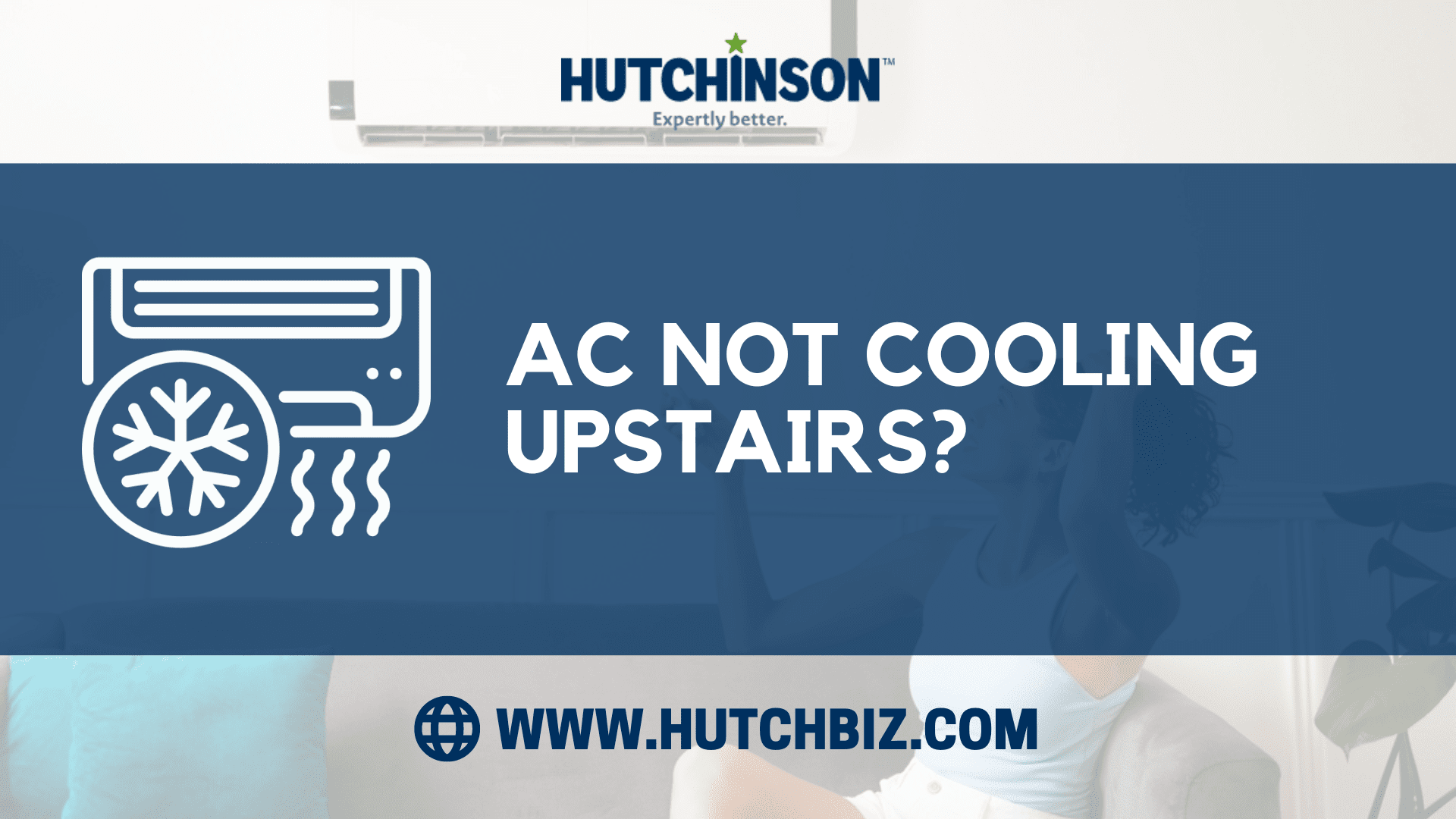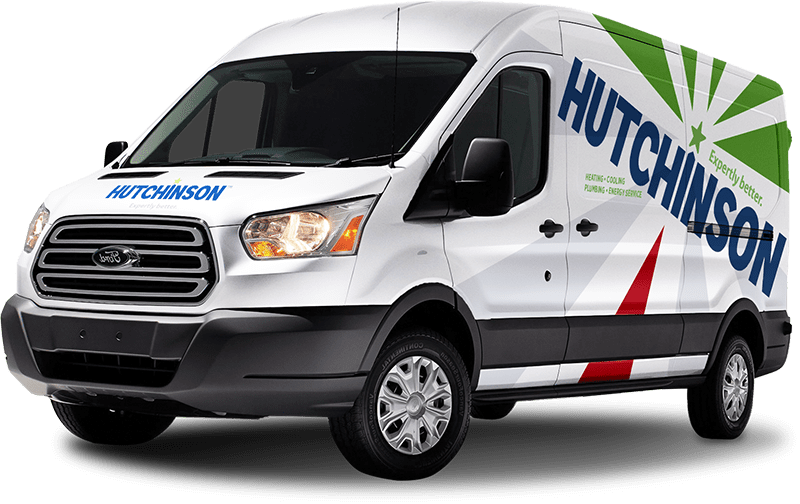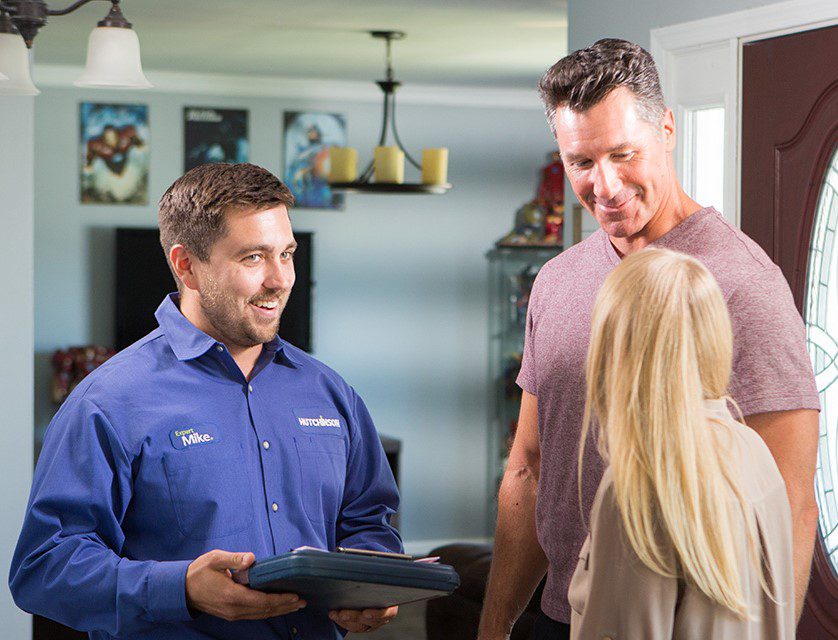
Nothing spells summer like cranking on your air conditioner and unwinding in a cool, breezy living room. But if you live in a two-story house, you probably already know that getting a cool temperature downstairs and upstairs is more challenging than you’d like.
Learn why your AC isn’t cooling upstairs, how to fix it, and when to dial in help from a professional AC technician.
How Does Multi-Floor House Design Affect Temperature?
To understand why the upper floors are hotter, we’ve got to go back to high school science class. Hot air is much less dense than cold air because air molecules have more energy when it gets hot. As a result, these hotter air molecules move around much more, increasing the space between the molecules. In English? Hot air is lighter and rises above cool air.
When you have a multi-floor house, the warm air naturally balloons to the upper levels, whereas the cold air sinks to the ground. While this may not be a problem in cooler months, it’s noticeable and problematic in summer months as your HVAC system must work extra hard to make even noticeable cooling happen.
1. Blocked Vents
Does your upstairs usually have a breeze cooling? If your cooling problem arose suddenly and there’s nothing overtly wrong with your HVAC, the problem could stem from a blocked vent.
HVAC systems distribute air through a vented design and then push air out through vents in your home. Most of these vents are on the floor on the baseboards. As a result, ducts can become blocked by dust, pet hair, furniture, and other impediments.
The good news is that the fix is easy here: check that there is no heavy dust accumulation by the vents by cleaning them out. Also, check to ensure no furniture is blocking the vents or their airflow. You might be surprised by how much greater cooling you get by doing a light cleaning session.
2. AC Maintenance Needs
Though it may seem like your HVAC is running fine, chances are it needs a tune-up. That’s because your HVAC system runs fairly constantly, pumping out cool air in the summer and warm air in the winter. As a result, homeowners should schedule AC maintenance before the start of every summer season.
Your HVAC system may suffer from problems like a clogged air duct, malfunctioning blower fan, malfunctioning air compressor, leaking or overworked unit, and more.
Schedule maintenance to kick your summer season off on the right start.
3. Broken or Leaky Ducts
If your HVAC system is the heart of your home, then the duct system is the arteries. Cooling systems work by having the HVAC system produce cool air. Then, it uses the ducts to distribute air to different rooms in the home. When there’s a problem with the vents, you won’t get cool air, no matter how hard your HVAC system works.
Ducts could have rips, tears, and excessive buildup, which stops air. Or you could have an older HVAC system that simply didn’t build enough ducts to the second floor. Consider scheduling duct maintenance to keep your ducts healthy and working properly.
4. HVAC Unit Is Outdated
Is central air not cooling upstairs? The problem could be an outdated HVAC. Old, antiquated HVAC units spell trouble for homes. The older the system, the more it will struggle to cool your home. Additionally, older units are less efficient, which means that it takes more fuel to produce and distribute cool air. If your unit is older than ten years old, consider upgrading to a new HVAC system or mini-split system.
5. Hot Roof
One aspect homeowners may not consider is a hot, uninsulated roof. Consider your roof, which spends twelve full hours absorbing the power of the sun. After a while, the roof absorbs excessive heat. If you don’t have proper insulation between the ceiling and your top floor, all that heat transfers to your second story.
The same logic applies if you have an uninsulated attic. Consider insulating your roof and attic to keep hot air out and cool air in.
6. HVAC Unit Is on the First Floor
HVAC units work by sucking in warm air and producing and distributing cool air throughout the house. If your HVAC system is on the first floor, it won’t be as effective and will work overtime to produce moderate cooling. This is because the cool air in your home sinks to the floor, and your HVAC system must continually push and re-circulate the cool air back up.
Make your HVACs life as easy as possible. Check to ensure there are no leaks in the vents, as this will lose what cool air the HVAC system can circulate. If you notice your HVAC system is struggling significantly, it’s worth contacting a professional to possibly upgrade your HVAC to better suit the size of your home.
7. The Temperature on Your Thermostat Is Too High
Sometimes, it’s the easiest problems that throw us for a loop. Many homes now have zoning cooling units, which allow different areas of the home set at different temperatures.
In the case of the upstairs, we all know that hot air rises, which means that, on average, your home base temperature will be warmer upstairs and cooler downstairs. Try lowering the upstairs temperature by two or three degrees the next time your AC is not working upstairs. Consider installing a zoning or smart cooling system so you never compromise your cooling needs.
Call Us for AC Maintenance Services in NJ
Don’t sweat through another New Jersey summer. When your upstairs AC is not cooling, contact a professional to troubleshoot and make fast, effective repairs. Whether the problem is due to an outdated HVAC system or clogged filters, our technicians have your back.
Looking for residential ac maintenance services in New Jersey? Book an appointment with Hutchinson today!


